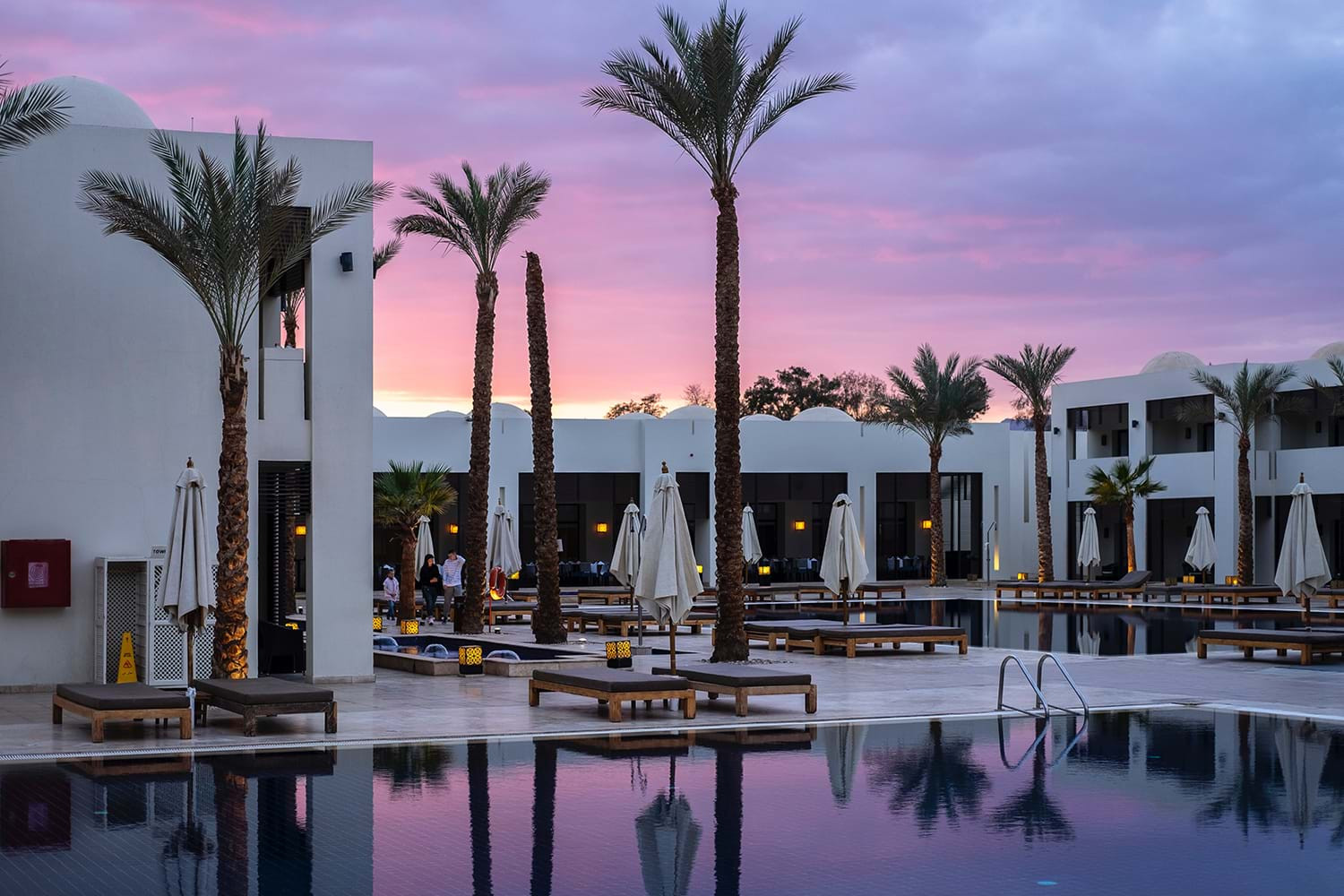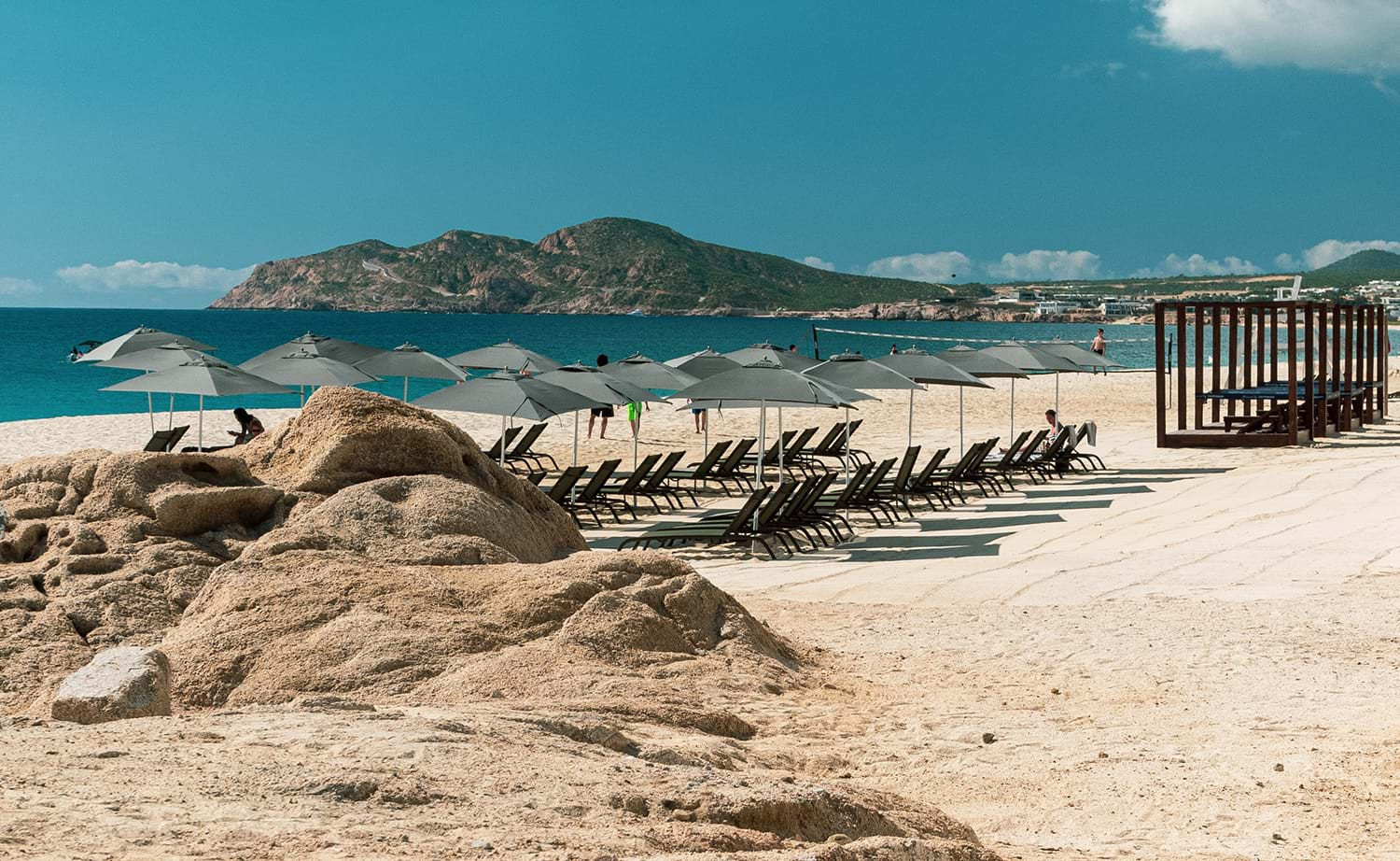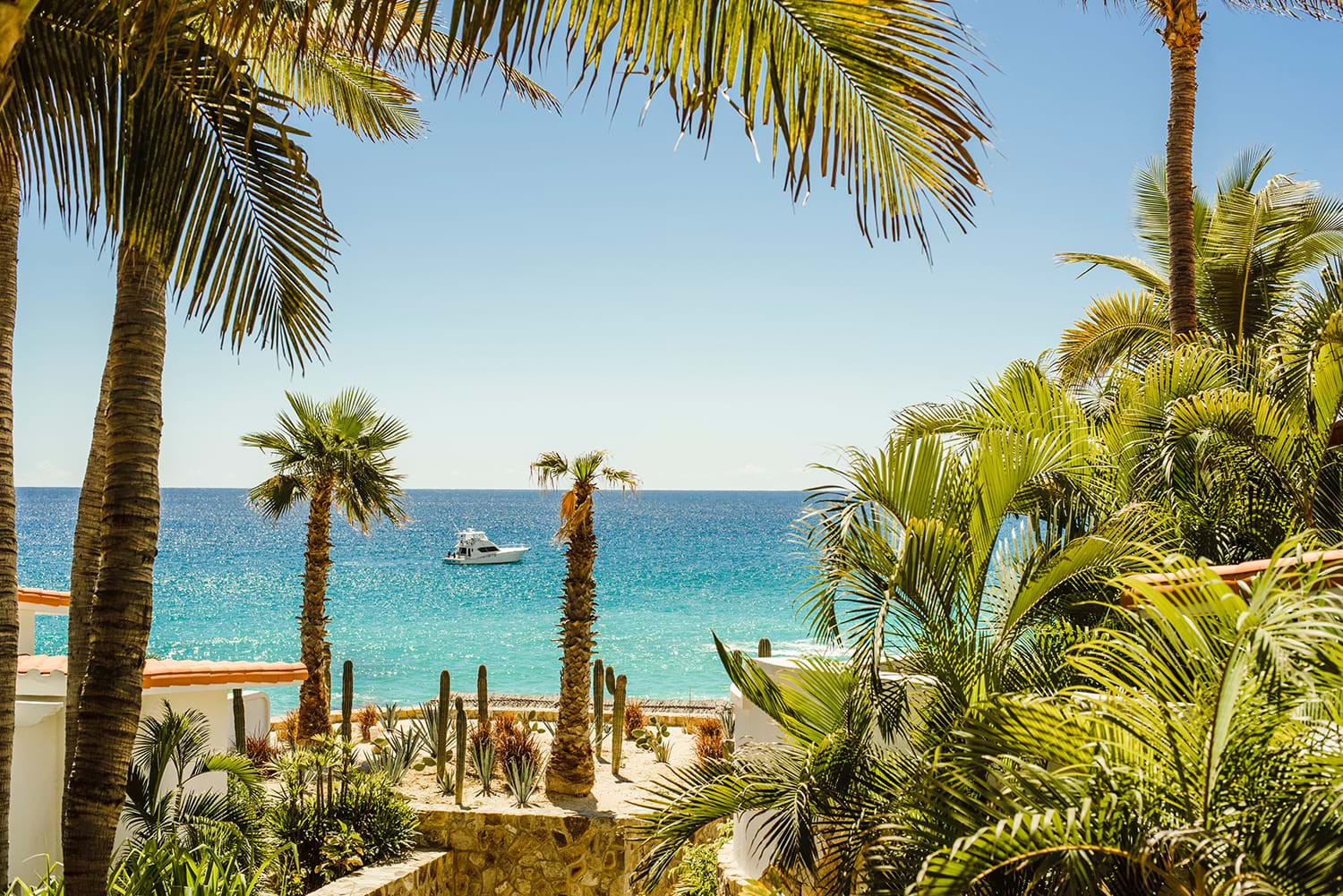Is Cabo Mexico Safe Right Now for LGBTQ+ travelers? Absolutely! Gaymexico.net is here to provide you with the most up-to-date and comprehensive information to ensure a safe and unforgettable vacation in Cabo San Lucas. We delve into safety tips, local insights, and resources to empower you to explore this stunning destination with confidence, focusing on LGBTQ+ safety in Mexican destinations.
1. Understanding Safety in Cabo for LGBTQ+ Travelers
Is Cabo Mexico safe right now? Yes, generally Cabo San Lucas is considered a safe destination for tourists, including LGBTQ+ individuals. However, like any travel destination, it’s essential to be aware of your surroundings and take necessary precautions. According to the U.S. State Department, while millions of U.S. citizens safely visit Mexico each year, it’s crucial to stay informed about local conditions. Cabo, being a major tourist hub, tends to have a higher level of security and police presence compared to other regions.
What Makes Cabo Relatively Safe?
- Tourism-Dependent Economy: Cabo’s economy relies heavily on tourism, which incentivizes local authorities to maintain a safe environment for visitors.
- Designated Tourist Zones: Tourist areas are generally well-patrolled and safer than more remote parts of the city.
- Growing LGBTQ+ Scene: While not as prominent as Puerto Vallarta, Cabo has a developing LGBTQ+ scene with welcoming venues and events.
2. Essential Safety Tips for a Worry-Free Trip
What steps can LGBTQ+ travelers take to ensure their safety in Cabo? To have a safe trip in Cabo, take these precautions:
2.1 Consult Local Experts
Seek advice from trusted sources like hotel concierges or reputable tour operators. These individuals can provide insights into safe areas and reliable transportation options. According to Journey Mexico, a well-established tour operator, local guides can offer invaluable advice on navigating the area safely and avoiding potentially risky situations.
2.2 Avoid Walking Alone at Night
Exercise caution when exploring alone, particularly during nighttime. Stick to well-lit, populated areas and be mindful of your surroundings. The GeoSure app provides neighborhood-by-neighborhood safety ratings for Cabo, though conditions can change.
2.3 Leave Valuable Jewelry at Home
Refrain from displaying expensive jewelry or accessories, as this may attract unwanted attention. Keep a low profile to minimize the risk of theft.
2.4 Secure Valuables
Hide valuable items in your hotel room and use a portable safe for added security. While hotel safes are generally reliable, a portable safe provides an extra layer of protection. Pacsafe offers anti-theft portable safes designed for travelers.
2.5 Trust Your Gut Feelings
Be attentive to your instincts and avoid situations or places that make you uncomfortable. If something feels off, remove yourself from the situation as quickly and safely as possible.
2.6 ATM Awareness
Exercise caution when using ATMs. Be aware of your surroundings and avoid using ATMs in poorly lit or secluded areas. Muggings can occur near ATMs, so it’s best to remain vigilant.
2.7 Transportation Safety
Opt for reliable transportation options such as hotel transportation or Uber. Confirm the vehicle and license plate before entering, and sit in the back seat. Avoid hailing taxis off the street, and if you must use a taxi, negotiate the fare in advance.
2.8 Stay Connected
Ensure you have access to a map and reliable cell service throughout your trip. This will allow you to navigate unfamiliar areas and stay in touch with friends or family.
3. LGBTQ+-Specific Safety Considerations
Are there specific safety concerns for LGBTQ+ travelers in Cabo? While Cabo is generally welcoming, LGBTQ+ travelers should be aware of local attitudes and customs. Public displays of affection may attract unwanted attention in certain areas.
3.1 Research LGBTQ+-Friendly Venues
Identify and support LGBTQ+-friendly establishments, such as bars, clubs, and hotels. These venues often provide a safer and more inclusive environment for LGBTQ+ individuals.
3.2 Be Mindful of Public Displays of Affection
While attitudes are generally progressive in tourist areas, exercise discretion when displaying affection in public, especially in more conservative neighborhoods.
3.3 Utilize LGBTQ+ Travel Resources
Refer to LGBTQ+ travel guides and websites for specific safety tips and recommendations. These resources can provide valuable insights into navigating LGBTQ+-friendly destinations.
4. Staying Safe at the Beach
How can visitors stay safe while enjoying Cabo’s beaches? Cabo’s beaches are beautiful, but it’s important to be aware of potential hazards such as riptides and jellyfish. Heed all posted signs and warnings regarding water status and safety.
4.1 Heed Warnings
Pay attention to posted signs, warnings, and flags regarding water conditions and safety. Flags typically follow a color-coded system, with red indicating dangerous conditions.
4.2 Avoid Swimming During Storms
Refrain from entering the water during storms or periods of inclement weather. Rough seas and strong currents can pose a significant risk.
4.3 Swim in Popular Areas
Opt for swimming at hotel pools or popular beaches on the Baja Peninsula’s east side. These areas are generally safer and may have lifeguards on duty.
 Hotel pool courtyard with violet sunset sky
Hotel pool courtyard with violet sunset sky
4.4 What are the best swimming beaches in Cabo San Lucas?
Here’s a list of great and popular swimming beaches to visit:
| Beach Name | Description | Amenities |
|---|---|---|
| Medano Beach | The most popular and swimmable beach in Cabo, known for its lively atmosphere, beach bars, and restaurants. | Restaurants, bars, water sports rentals, beach clubs, and public restrooms |
| Lover’s Beach | A picturesque beach located near the iconic El Arco rock formation, accessible by water taxi. | Water taxis, snorkeling tours |
| Chileno Beach | A calm and clear beach, perfect for snorkeling and swimming, with a reef teeming with marine life. | Palapas (shade structures), restrooms, showers, and snorkeling equipment rentals |
| Santa Maria Beach | Another excellent snorkeling spot with calm waters and a sandy bottom, ideal for families and beginner snorkelers. | Limited amenities, bring your own supplies |
| Palmilla Beach | A tranquil beach with gentle waves, ideal for swimming and paddleboarding, located near the One&Only Palmilla resort. | Restaurants |
| Empacadora Beach | A secluded beach with calm waters, perfect for families with small children, located near the Puerto Los Cabos marina. | Limited amenities, bring your own supplies |
| Cannery Beaches | A series of small, protected coves with calm waters, ideal for swimming and snorkeling, located near the old cannery. | Limited amenities, bring your own supplies |
| Monuments Beach | A great beach for surfers and for advanced swimmers. You should avoid this beach if you’re not proficient because the undertow can be really strong here sometimes. | Limited amenities, bring your own supplies |
5. Food and Health Precautions
What health precautions should travelers take in Cabo? Avoid drinking tap water and opt for bottled or purified water. Request drinks without ice and be vigilant about drink spiking. Practicing good hygiene, such as frequent hand washing, is also essential.
5.1 Drink Purified Water
Avoid drinking tap water and consume bottled or purified water instead. This will help prevent stomach illnesses.
5.2 Request No Ice
Request that all drinks be made without ice, as ice may be made with tap water.
5.3 Watch Your Drink
Be vigilant about your drink at all times to prevent drink spiking. Never leave your drink unattended and be wary of accepting drinks from strangers.
5.4 Practice Good Hygiene
Wash your hands frequently with soap and water to prevent the spread of germs. Hand sanitizer can also be used when soap and water are not available.
6. Awareness of Natural Hazards
Are there any natural hazards to be aware of in Cabo? Be aware of potential natural hazards such as insects, snakes, and scorpions. Take precautions such as shaking out shoes, keeping bags tightly closed, and using insect repellent with a high concentration of DEET.
6.1 Insects, Snakes and Scorpions
Take these simple but important precautions:
| Hazard | Precautions |
|---|---|
| Bark Scorpions | Shake out your shoes before putting them on, shut your bags tightly so scorpions can’t crawl in, and leave them alone as much as possible. |
| Rattlesnakes | Be cautious when hiking or exploring inland areas, as rattlesnakes may be present. The yellow-bellied sea snake lives in the water and packs a powerful bite. |
| Mosquitoes | Know your bite allergies before you leave and bring insect repellent with a high concentration of DEET to ward off mosquitos that carry Zika and poisonous spiders like the brown recluse who have very painful bites. |
 Mound of sand on beach
Mound of sand on beach
6.2 Weather Conditions
Stay informed about weather conditions, particularly during hurricane season (July through September). Baja California Sur is generally immune from hurricanes, but it’s still important to monitor the forecast. As Biswell mentioned, hurricanes are unpredictable, so don’t let the possibility deter you from traveling to Mexico during these months.
6.3 Natural Disasters
Earthquakes and volcanic eruptions are less common but can occur in Baja California. If an earthquake strikes, seek open spaces away from potential building collapses.
7. Navigating Mexico’s Medical System
What should travelers know about Mexico’s medical system? If you require medical attention while in Cabo, ensure that the provider is on the State Department’s list of providers and hospitals. Bring payment, as most Mexican hospitals require upfront payment by cash, credit card, debit card, or bank transfer. Consider purchasing travel health insurance for added protection.
7.1 Medical Care
Make sure your provider is on the State Department’s list of providers and hospitals.
7.2 Payment Requirements
Bring payment. Most Mexican hospitals don’t accept U.S. domestic health insurance or Medicare/Medicaid and require payment upfront by cash, credit card, debit card, or bank transfer.
7.3 Travel Health Insurance
Pack travel health insurance from a company like Berkshire Hathaway Travel Protection, and contact insurance as soon as a situation arises. They’ll work with you and providers to coordinate care and payment.
8. Passport and Documentation
Ensure that your passport is valid and up-to-date. If you need to renew your passport, do so well in advance of your trip. The State Department reminds travelers to pack lightly and bring appropriate clothing, be aware of the effects of different food, a new climate, more strenuous physical activity, and changes in routine and schedule.
8.1 Passport Validity
Ensure that your passport is valid for at least six months beyond your intended stay in Mexico.
8.2 Documentation
Keep copies of important documents, such as your passport, driver’s license, and insurance information, in a safe place separate from the originals.
8.3 Consular Assistance
Work with the nearest consulate or embassy if you need help contacting relatives or friends, finding medical care, reporting a crime, finding accommodations, arranging flights home, or replacing a stolen or lost passport.
9. Additional Safety Tips
What other safety measures should travelers consider? In addition to the above tips, the State Department recommends packing lightly, being aware of the effects of different food and climate, and working with the nearest consulate or embassy if you need assistance.
9.1 Pack Lightly
Avoid bringing unnecessary valuables or attracting attention with flashy clothing or accessories.
9.2 Be Aware of the Effects of:
- Different food
- A new climate
- More strenuous physical activity
- Changes in routine and schedule
9.3 Consular Assistance
Work with the nearest consulate or embassy if you need help:
- Contacting relatives or friends
- Finding medical care
- Reporting a crime
- Finding accommodations
- Arranging flights home
- Replacing a stolen or lost passport
10. Embracing Cabo with Confidence: Final Thoughts
Is Cabo Mexico safe right now for you? Overall, Cabo San Lucas offers a relatively safe and enjoyable destination for LGBTQ+ travelers. By following these safety tips, exercising caution, and staying informed, you can have a memorable and worry-free vacation in this stunning Mexican paradise. As Biswell advises, travel insurance from Berkshire Hathaway Travel Protection is a great investment for peace of mind. Remember to pack your laid-back attitude and embrace the beauty and culture of Cabo!
 View through palm trees at ocean
View through palm trees at ocean
11. Discover LGBTQ+ Mexico with Gaymexico.net
Ready to explore the best of LGBTQ+ Mexico? Visit gaymexico.net for comprehensive travel guides, insider tips, and a vibrant community. Find the safest and most welcoming destinations, events, and venues for an unforgettable experience. Don’t just travel, connect with the heart of LGBTQ+ Mexico!
Address: 3255 Wilshire Blvd, Los Angeles, CA 90010, United States
Phone: +1 (213) 380-2177
Website: gaymexico.net
FAQ: Your Questions About Safety in Cabo, Answered
1. Is Cabo San Lucas safe for tourists right now?
Yes, Cabo San Lucas is generally considered safe for tourists, as it relies heavily on tourism. The main tourist areas are usually well-patrolled and have a strong police presence to ensure visitor safety. However, like any travel destination, it’s important to stay aware of your surroundings and take basic safety precautions.
2. What are the safest areas to stay in Cabo San Lucas?
The safest areas to stay in Cabo San Lucas are typically in the main tourist zones such as the Hotel Zone, downtown Cabo San Lucas, and the marina area. These areas are well-lit, frequently patrolled, and offer easy access to amenities and attractions.
3. Is it safe to walk around Cabo San Lucas at night?
It is generally safe to walk around the tourist areas of Cabo San Lucas at night, but it’s best to stick to well-lit and populated streets. Avoid walking alone in less crowded or poorly lit areas. Using a taxi or Uber is a safer option for transportation after dark.
4. Are there any specific areas in Cabo San Lucas that tourists should avoid?
While Cabo San Lucas is generally safe, it’s best to avoid the outskirts of the city and less-traveled areas, especially at night. Additionally, be cautious in crowded areas where pickpocketing can occur.
5. How safe is the water in Cabo San Lucas for swimming?
The safety of the water in Cabo San Lucas varies depending on the beach. Some beaches have strong currents and riptides, making them unsafe for swimming. It’s best to swim at beaches that are known for calm waters and have lifeguards present. Pay attention to warning flags and signs posted on the beach.
6. What should I do if I encounter a dangerous situation in Cabo San Lucas?
If you encounter a dangerous situation in Cabo San Lucas, the most important thing is to remain calm. If possible, move away from the threat and seek help from local authorities or tourist police. You can also contact your hotel or the U.S. Embassy for assistance.
7. Is it safe to drink the tap water in Cabo San Lucas?
No, it is not safe to drink the tap water in Cabo San Lucas. Stick to bottled or purified water for drinking and brushing your teeth. When ordering drinks at restaurants and bars, ask for no ice or ensure that the ice is made from purified water.
8. How can I protect myself from petty theft in Cabo San Lucas?
To protect yourself from petty theft in Cabo San Lucas, avoid displaying expensive jewelry or electronics in public. Keep your valuables in a safe place, such as a hotel safe, and be aware of your surroundings in crowded areas. Use a cross-body bag or money belt to keep your belongings secure.
9. What is the best way to get around Cabo San Lucas safely?
The best ways to get around Cabo San Lucas safely are by using authorized taxis, Uber, or hotel transportation. Avoid hailing taxis on the street and always negotiate the fare in advance. If renting a car, stick to well-traveled roads and avoid driving at night.
10. Are there any specific health concerns I should be aware of in Cabo San Lucas?
Some health concerns to be aware of in Cabo San Lucas include food and waterborne illnesses, mosquito-borne diseases such as Zika and dengue fever, and sunburn. Practice good hygiene, use insect repellent, and wear sunscreen to protect yourself. It’s also a good idea to consult with your doctor before traveling to Cabo San Lucas to discuss any necessary vaccinations or health precautions.
